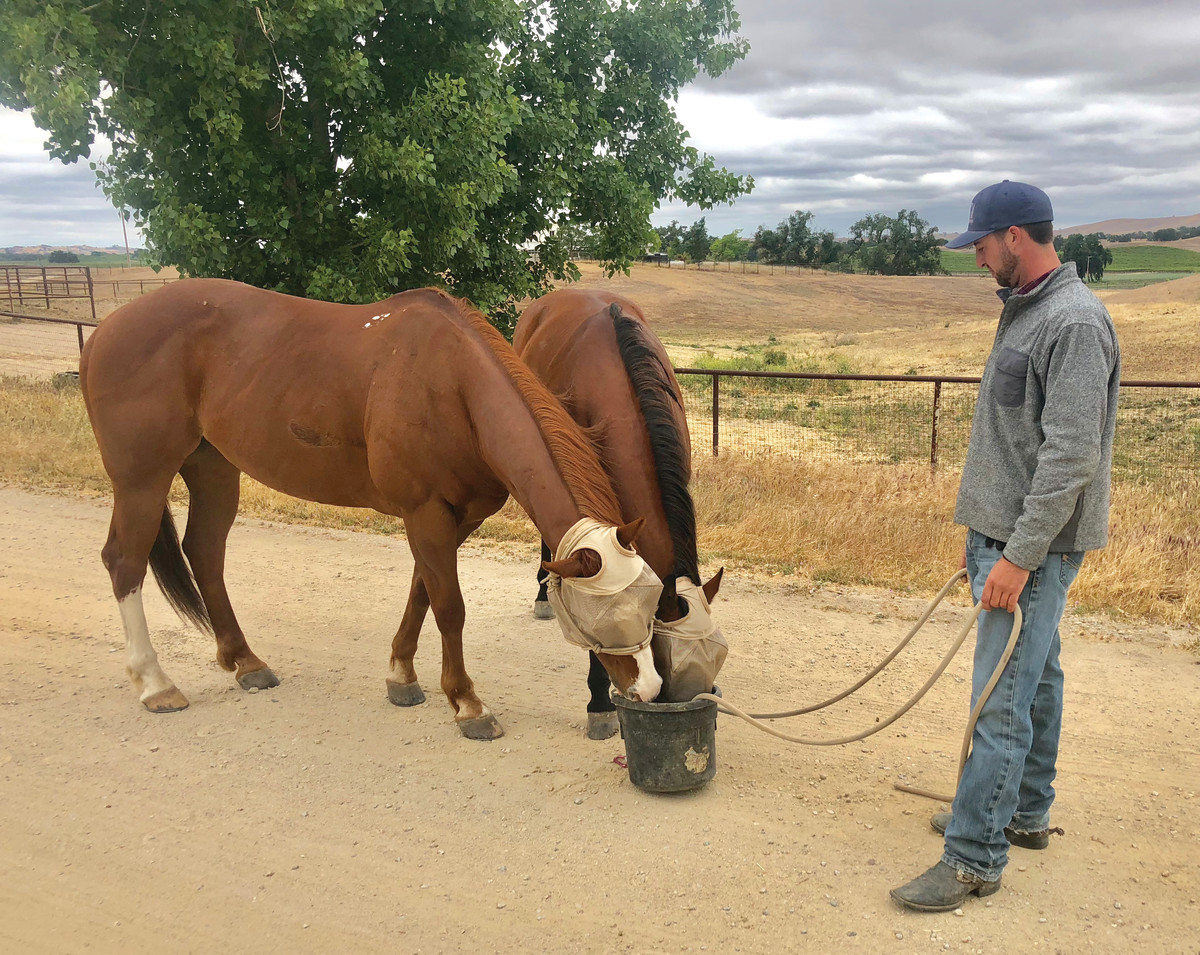Rodeo veteran Travis Graves savvies the significance of horses to every roper’s success. He’s learned a few tricks of the trade to help make the best of the trailer time that’s part of every rope horse’s job description.
“The hauling is extremely hard on horses, especially when it’s really hot,” said nine-time Wrangler National Finals Rodeo qualifier Graves, who’s currently heeling for Clay Tryan. “Common sense goes a long way. Not taking the best possible care of that horse that helps you make a living is lazy, and is just bad business.”
[SHOP: Travis Graves’ Tools of the Trade]
Heel O Matic Hox Heel Roping Dummy
(As an Amazon Associate, we earn from qualifying purchases made through affiliate links.)
Keep ’em Hydrated
“I let my horses out every six hours on long trips, no matter what,” Graves said. “And I offer them water every time I get them out. A dehydrated horse is a lot more likely to colic. A lot of people stop to fuel up and stick a bucket in the manger. When they won’t drink, they assume they aren’t thirsty. My good horse Manny won’t drink that way, and a lot of horses won’t. But if I take him out and walk him around, he’ll drink every time.”

Stretch Their Legs
“We know how important it is to get out and stretch our legs, and our horses are no different,” TG said. “When we stop at a truck stop or whatever, I’m looking for somewhere safe to unload and walk them on dirt or grass. I offer them a drink, and put another flake of hay in front of them in the manger. And I clean the trailer out. It takes a little time to get it all done—maybe 20 to 30 minutes—but it’s worth it. And if it’s really hot, I’ll throw a bucket of water on their back or hose them off. Horses get hot and tired, just like we do.”
Read:
Keep it Clean
“There’s nothing worse than that ammonia stink in a hot trailer,” Graves continued. “It gets in their lungs, and if it’s really bad and prolonged it can make one sick and give a horse pneumonia. Keep your trailer clean. My favorite for the trailer is the pellet shavings from a place like Tractor Supply. You wet them down, and they stay in place really good. They don’t fly around, like wood shavings sometimes do. When a horse pees, it keeps it right there, and is easy to scoop out. They cost a little more than the pine shavings, but they last longer, absorb better, and don’t stink as bad. So I think they’re worth it.”
Keep the Air Moving
“I usually haul two horses in a four-horse trailer. When I do, I open the two front windows, but close the front windows where my horses are,” Graves noted. “I keep all the back windows open for circulation, but only open all the front ones when it’s really, really hot, like in Pecos, Texas. When I do have their front windows down, I don’t put hay in front of them. Every once in awhile you hear a horror story about a piece of alfalfa stem or a piece of shavings blowing up a horse’s nose and getting into their lungs. I keep a fly mask on my horses when hauling them. In addition to keeping the flies off of them, it also protect their eyes. Some styles protect their ears, too.”
Upon Arrival
“Tying a horse to the trailer after hauling him 10 hours is not a reasonable option,” Graves said. “If there are no stalls when you get there, build your horse a pen, so he can lay down. I build a hot-wire fence on grass when I can. I believe this and all these other suggestions extend a horse’s career, I really do.”










